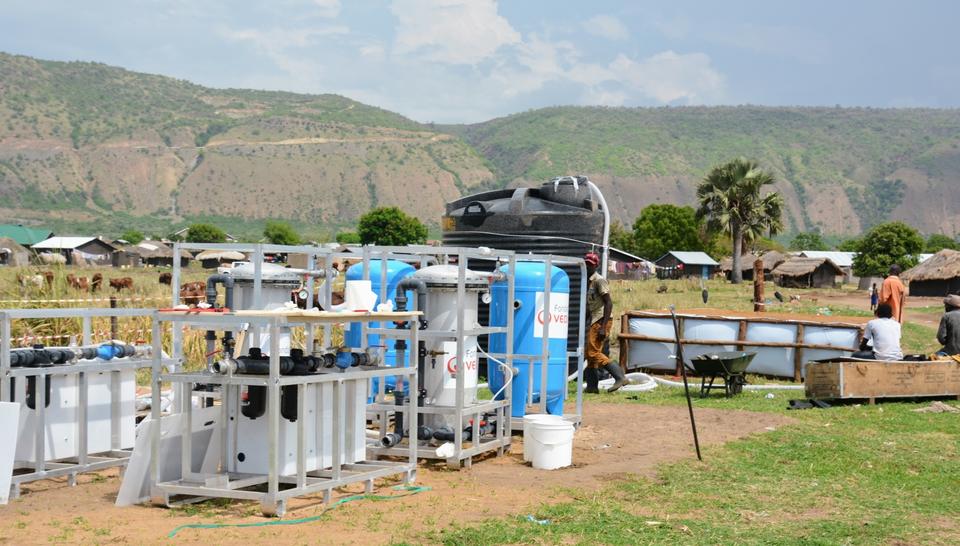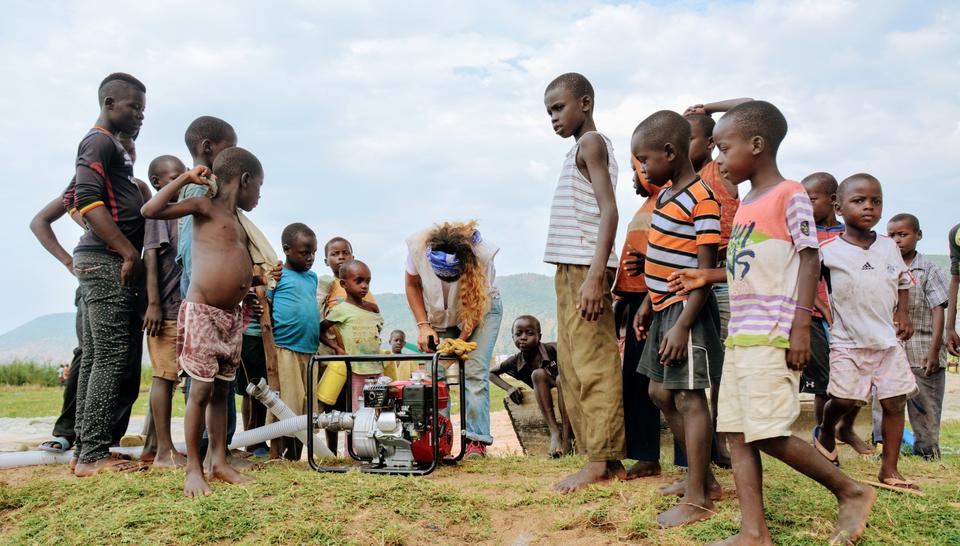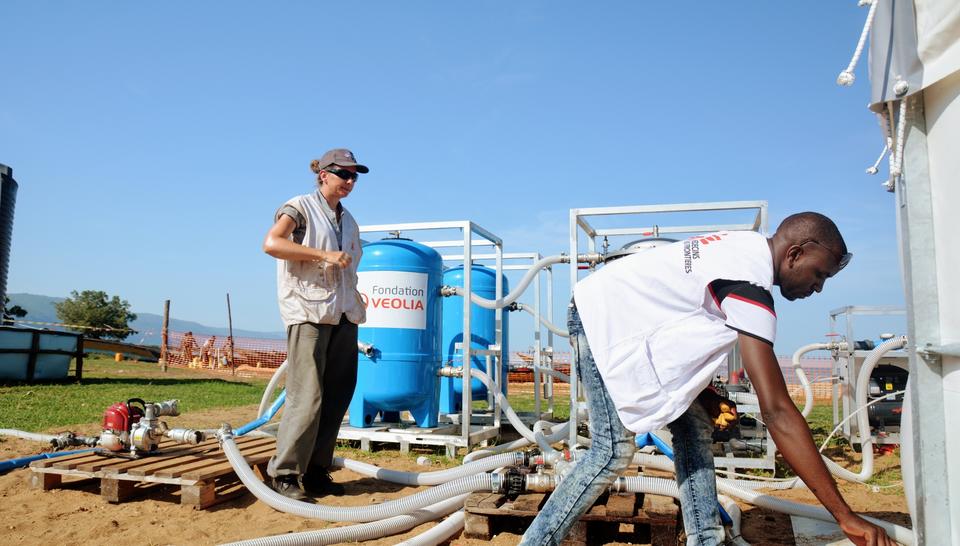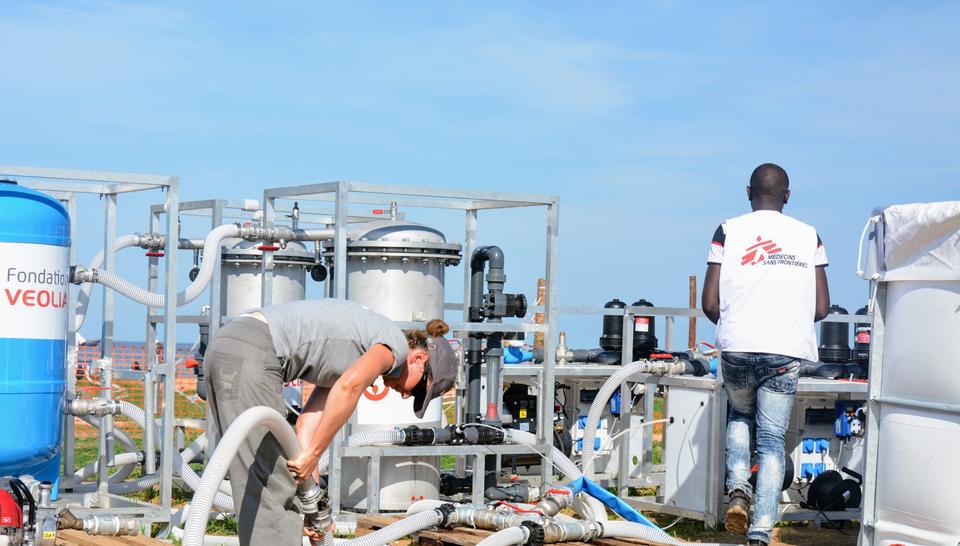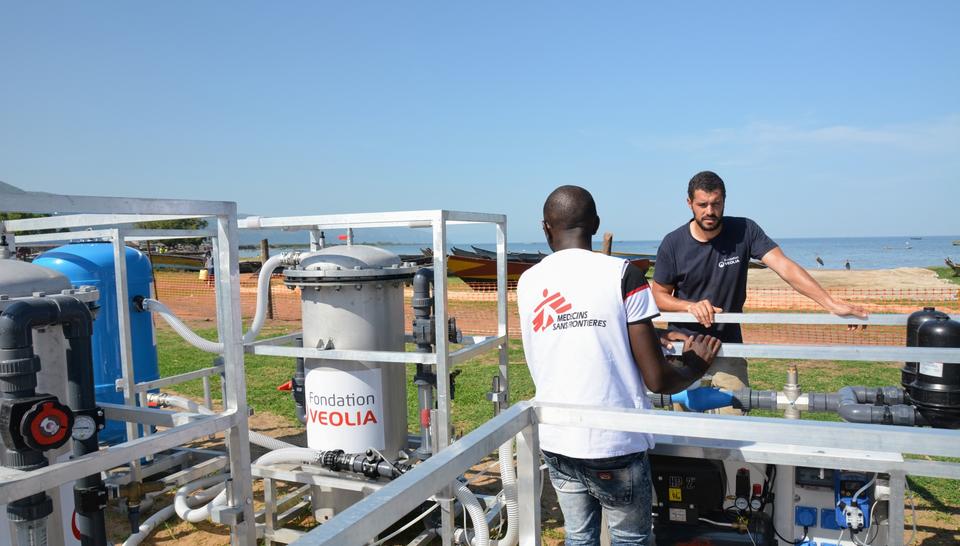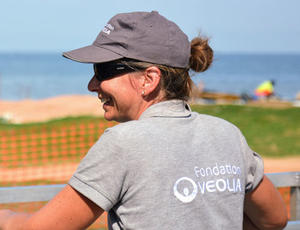In the north-eastern part of the Democratic Republic of the Congo (DRC), fighting is causing inhabitants to flee from their homes by crossing Lake Albert to reach the Ugandan side. The situation began seriously deteriorating in early 2018. The refugee camp created by authority of the UN in Kyangwali, Uganda, grew from a population of 40,000 to 70,000 in a matter of weeks.
Deteriorating sanitary conditions were made worse by a cholera epidemic. As of February 22nd, 535 suspected cases and 22 fatalities were recorded in the Kyangwali refugee camp.
Such was the background when Doctors Without Borders (MSF), which provides assistance to to local and refugee and local populations, asked the Veolia Foundation for help to working alongside them to provide quality drinking water. So a Veoliaforce volunteer and a Foundation project manager spent a fortnight on site with MSF's team to set up an Aquaforce 15000 unit. The latest in a line of mobile water treatment units designed by the Foundation, this model required two years of trials and development. It has the capacity to supply up to 15,000 people with 20 litres per day under WHO standards.
The unit was deployed alongside the Kyangwali camp and has quickly achieved a daily production of 100 cubic metres, enough to supply the local population and to facilitate the access to water for refugees in the camp using distribution manifolds and tankers.
On top of confirming the technical excellence of the Aquaforce 15000, the mission was a success: increasing the quantity and quality of drinking water distributed helped contain the cholera epidemic. The coordinated efforts of those who were on site made it possible to cut down on the number of cases recorded by MSF.


